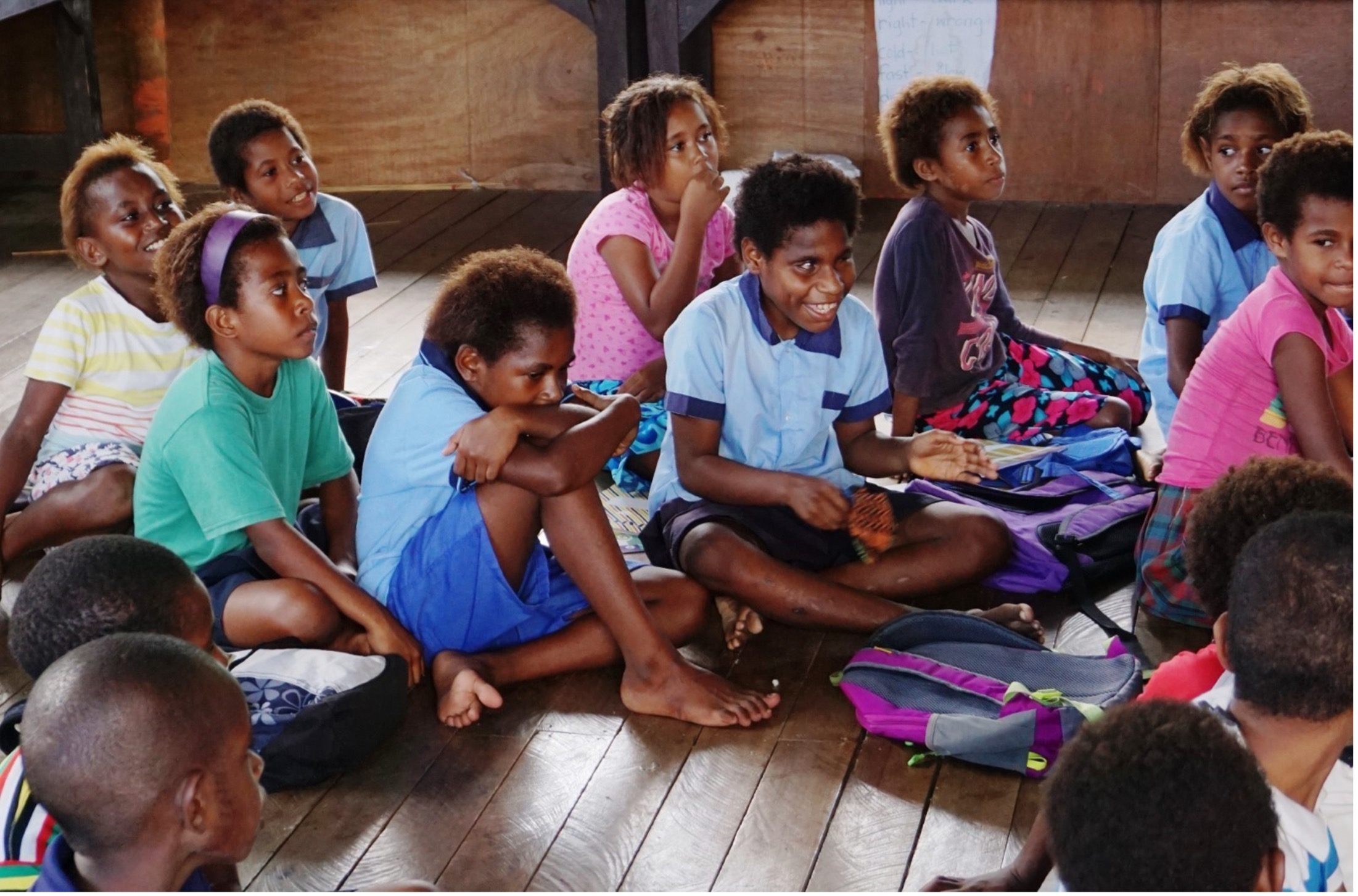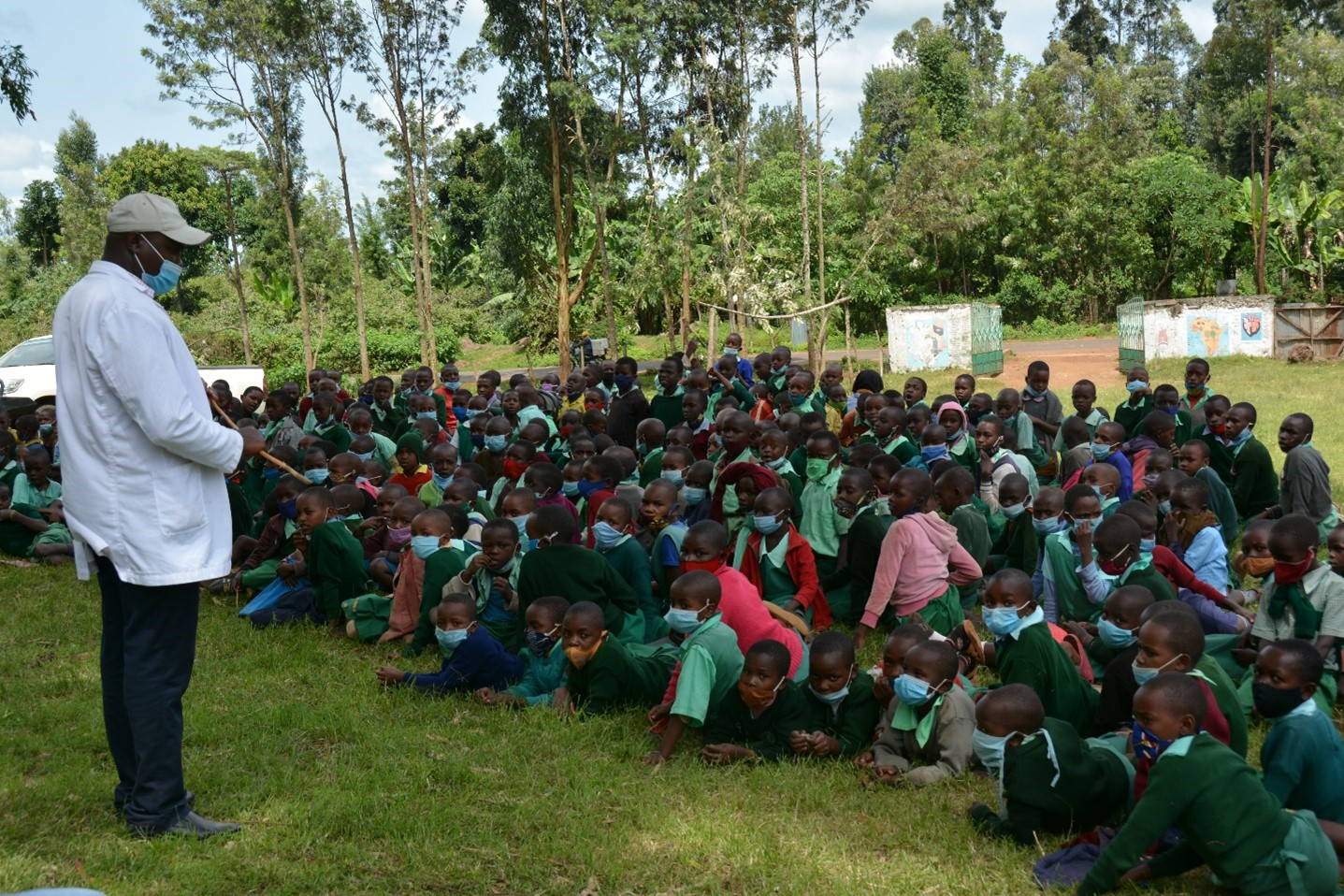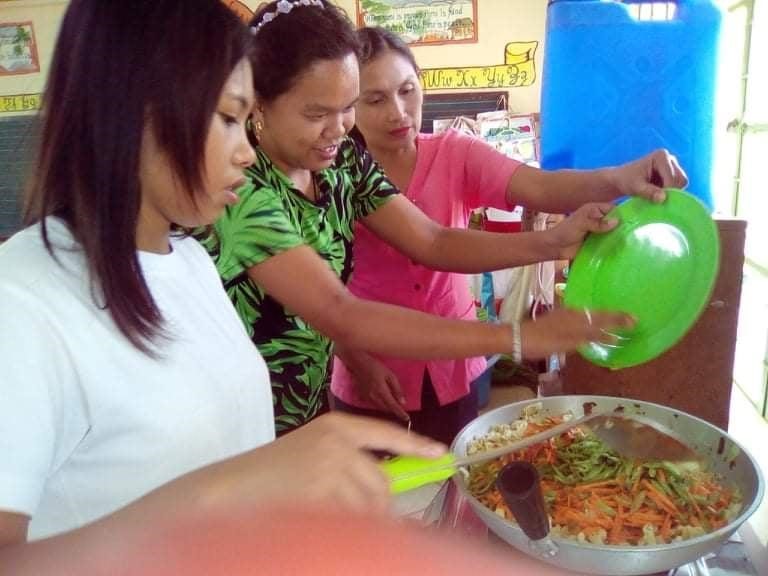Education is a human right
Receiving an education is one of the primary ways young people living in poor communities can break out of the poverty cycle. If children get a primary and secondary education, the benefits are lifelong with the potential to impact the social development of future generations.
CBM’s work in inclusive education is based on the principle that all children should be able to attend school and participate effectively, and that no child should be excluded from this human right.
Our work aims to equip mainstream educational institutions to be accessible in all areas for students with disabilities.
Watch a video on why inclusive education is important
The daily challenge of receiving an education
Children with disabilities living in poverty face immense daily obstacles to receive an education. While every child has a unique story, our work supporting inclusive education demonstrates there are common themes that can help educational institutions make a lasting difference for children with disabilities.
- Providing access to rehabilitation therapy and relevant assistive technology such as mobility or vision aids to prepare children for school.
- Removing barriers to getting to school by providing transport or empowering primary carers.
- Ensuring access to the classroom. Many schools don’t meet minimum standards for access such as having a ramp or adequate space for a wheelchair.
- Training teachers in Braille or sign language to prevent communication challenges in class.
- Guaranteeing access to toilets. Schools in poorer communities are not typically designed to accommodate the needs of children with disabilities.
- Providing financial support to ensure access to education by removing financial constraints.
In the face of all these obstacles, many children with disabilities living in poverty are left out of the education system, with lifelong consequences.
Education and poverty: the facts
Children and young people with disabilities are often among the most vulnerable members of society. Poverty can compound the challenges they face in accessing education.
- 65 million primary and secondary school-age children with disabilities across the globe are out of school.
- Around four in five children with disabilities live in developing countries.
- Children with disabilities are 42% less likely to have foundational reading and numeracy skills.
The UN Convention on the Rights of the Child recognises that all children have the right to education, that primary education should be compulsory and available free to all children.
For children with disabilities, education, training and other services should be conducive to the child achieving the fullest possible social integration and personal development.
Education is a key way in which people with disabilities living in poverty can break out of the cycle of poverty and disability.
How we help
At CBM, we want every child with disabilities to benefit from inclusive and equal access to education. To achieve sustainable outcomes, we work with local communities to develop innovative solutions for financial assistance, support and education to facilitate change.
We have found the following areas of focus have the biggest impact in changing fundamental education and human rights in developing nations.
Community development
Our broader community development work brings a key advantage in enabling early intervention so children with disabilities can access therapy and assistive devices and are ready for mainstream school.
For example, CBM supports the development of self-help groups of people with disabilities where the lack of free education is a key concern.
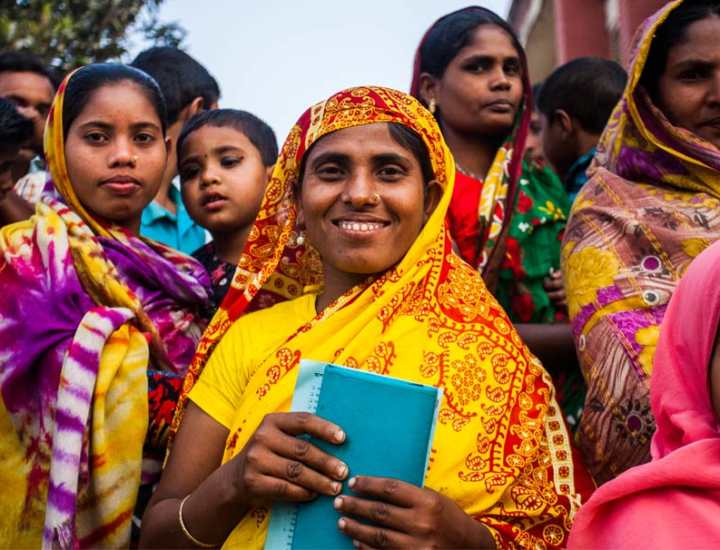
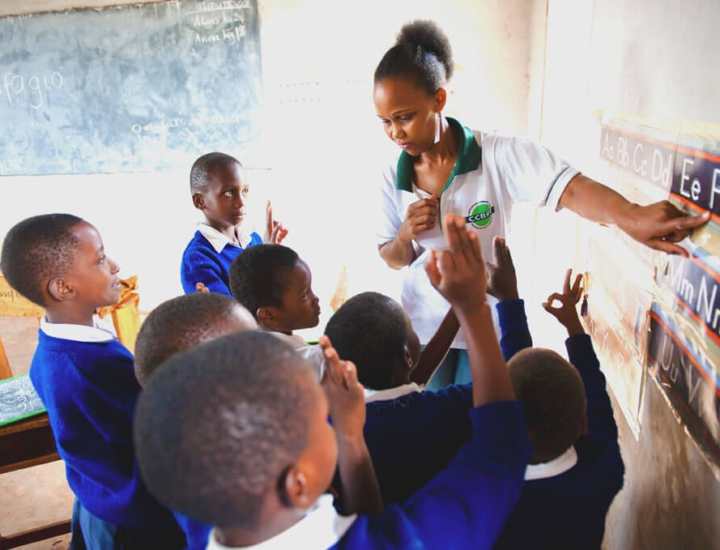
Education rights in government schooling
We have developed education initiatives that promote inclusion within specific government schools. Such work ensures that community processes are in place to enable children with disabilities to be identified and have their learning needs met.
For example, in Kenya we support children with disabilities, or children at risk of disability, to attend school and support teachers by providing quality learning materials such as books to read and paper to write on.
Teacher training
We support the training of teachers in inclusive education rights, responding to the reality that children with disabilities are amongst the poorest in their community with limited access to education and health services. We also encourage home-based education for children with severe mobility or intellectual impairments.
You can support our teacher training and improve the quality of children’s education by Donating a Diploma for a Primary Teacher or Donate to Train a Specialist Teacher.
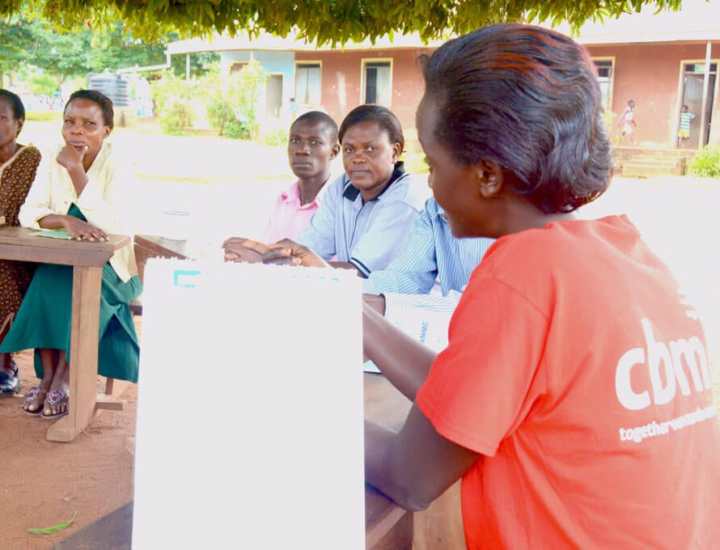
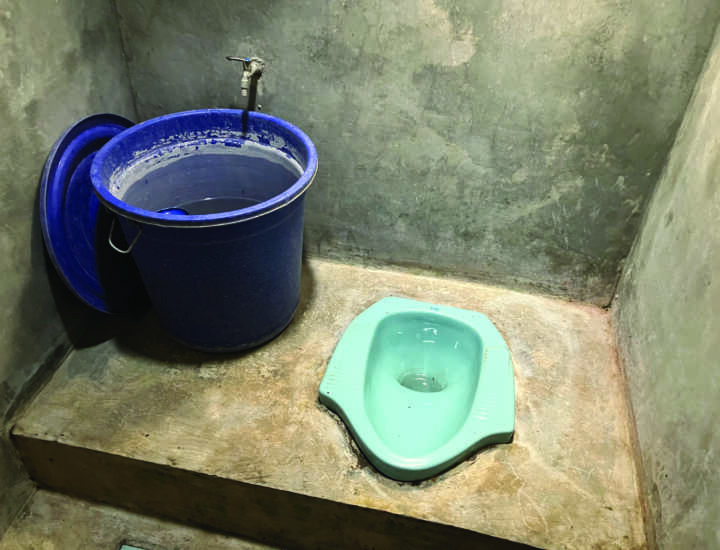
Accessible infrastructure
Many schools are not accessible for children and young people with disabilities — either because there are no ramps or space for wheelchair users, and no accessible toilets and washrooms. We advise on inclusive facilities that enable children with disabilities to be able to participate fully in school life.
You can help children with disabilities living in poverty get an education by donating an accessible toilet for kids with physical disabilities.
Government advocacy
We influence governments to adopt policies and systems to ensure more inclusive education programs for young people. We advocate for greater investment in teacher training, accessible infrastructure, and attitude and awareness programs so that more children with disabilities are able to attend a local school or school of their choice.
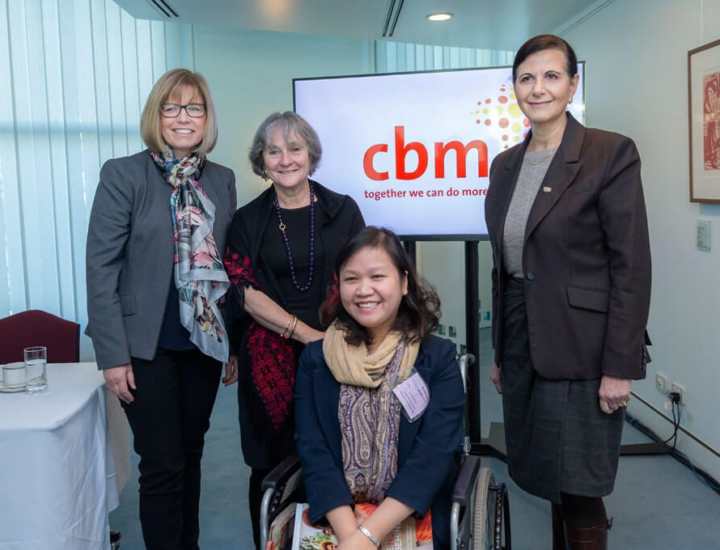
Together, with your support, these programs and approaches will have a lasting and transformative difference to the lives of children with disabilities, ensuring that everyone benefits from inclusive education and no-one is left behind.

